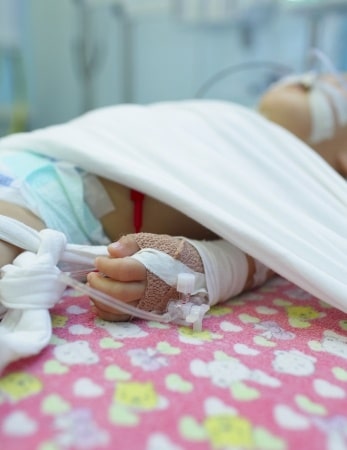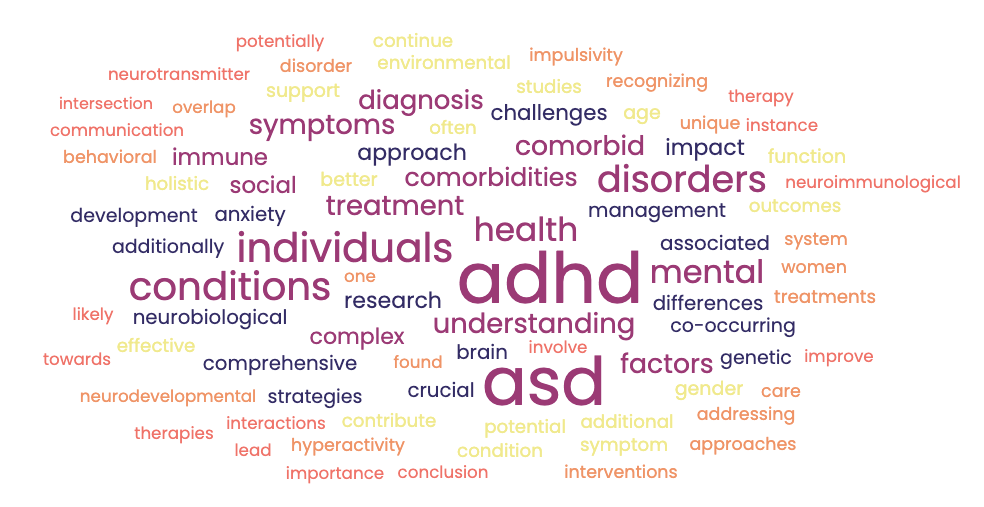Pediatric patients diagnosed with a life-threatening medical condition and their families are catapulted into crisis mode as they embark upon a challenging journey with numerous potentially traumatizing situations. These children and adolescents may experience frightening diagnoses, emergency room visits and multiple hospitalizations with unknown duration, painful or distressing procedures, adverse side effects, and repeated losses related to one’s underlying illness or disability. Even with such experiences, both research and clinical experience have shown that many of these youngsters and families and are resilient, meaning that they are able to cope and adjust effectively to the challenging circumstances; however a subset of patients and families continue to experience emotional and adjustment difficulties that can lead to significant disruption to their lives.
Life-threatening pediatric medical conditions and treatment can hinder the achievement of normal developmental tasks of pediatric patients, especially for adolescents. A medical illness may impede their ability to establish an identity, make decisions about education and career paths, and form relationships (Dahl, 2004). Particularly challenging can be the clash between their need for independence (and sense of invincibility) and the dependent status as a patient. In addition, their usual concerns with body image and emerging sexuality may be worsened by the changes in physical appearance related to the medical condition and treatment, such as weight gain, hair loss, and scares from procedures/surgeries. Mintzner and colleagues found that 16.3% of adolescents who underwent solid organ transplant met all criteria for post-traumatic stress disorder (PTSD), and an additional 14.4% endorsed post-traumatic stress symptoms (PTSS). In study of 63 cancer patients (ages 7-20 years), 25.4% met the DSM-IV criteria for Major Depressive Disorder (MDD), 14.3% for anxiety disorder, and 12.7% for comorbid MDD and anxiety disorder (Gothelf et al., 2005). These symptoms are alarming as it can not only impact one’s quality of life, but also lead to avoidant behaviors that negatively impact treatment and recovery (e.g. missing clinic appointments and being non-adherent to their treatment regimen).
Of note, pediatric illnesses have a significant impact on parents and siblings, representing a psychological health risk for the whole family. Caregivers must often absorb complicated medical information and make critical decisions about treatment, witness the child in pain and undergoing intensive treatment, as well as face uncertainty about their child’s future. Thus, it is not surprising that PTSS have been well documented in caregivers. In particular, Kazak et al. (2001) found that 11% of mothers (who had a child diagnosed with cancer) met criteria for PTSD diagnosis, while 95% of them met criteria for the re-experiencing symptom cluster and 53% for the hyperarousal cluster; for families who had two participating parents, 80% had at least one parent with moderate-to-severe PTSS (Kazak, Boeving, Alderfer, Hwang, & Reilly, 2005). Similarly, Farley and colleagues (2007) reported 19% PTSD prevalence among parents of children who underwent heart transplantation. Similarly, healthy siblings may be suddenly separated from family members for long periods of time, witness the physical and emotional pain of the ill brother/sister and parent distress, and deal with the uncertainty of the future. Research has shown that siblings experience mood disturbances, conduct problems, poor academic achievement, and difficulties in social relationships (Alderfer, Labay, Kazak, 2005; Barbarin et al., 1995).
Overcoming the Adversity:
While mild symptoms of most children and family members will be resolved without formal psychological or psychiatric intervention, evidenced-based treatment is indicated for those who continue to have elevated and/or escalated psychological distress. While there is no one specific template or road map for maneuvering the pediatric illness journey, trauma-focused cognitive-behavioral strategies have demonstrated efficacy for traumatized children and their families, and should be considered the first line treatment. Psychopharmacological treatment, involving Selective Serotonin Reuptake Inhibitor (SSRI), is recommended for the treatment of PTSD in combination with psychotherapy; it is considered as a first line medication for children who are not responding effectively to psychotherapy or when symptomatology is severe (Forgey & Bursch, 2013).
It is important to note that the effects of traumatic experiences may not be universally negative. In fact, childhood cancer survivors have shown to report increased maturity, greater compassion and empathy, new values and priorities, new strengths, and recognition of one’s vulnerability and appreciation for life (Parry and Chesler 2005). In addition to being resilient, research and clinical experience have also revealed the phenomenon, posttraumatic growth (PTG), which is the positive psychological change that results from a struggle through a life-altering experience (Seligman & Csikszentmihalyi 2000; Levine et al., 2008). Picararo and colleagues (2014) conducted a literature review and posited that PTG may involve numerous components, including greater appreciation of life, improved interpersonal relationships, greater personal strength, recognition of new possibilities in one’s life course, spiritual or religious growth, and reconstruction of a positive body image. They authors revealed that parents and children may experience PTG following medical trauma through a combination of cognitive and affective processing of their subjective experience. These findings are encouraging as psychotherapy provides a safe place for such cognitive and affective processing to take place, guided by a skilled and empathic clinician.
A family-based approach to assessment and treatment is central to the overall adjustment and well-being of the pediatric patient. Given that a secure attachment to a caregiver, healthy parental psychological functioning, effective parenting skills, and cohesive family functioning have demonstrated to be protective factors in the face of adversity (Laor et al., 1996; Lavingne & Faier-Routman, 1992), families can benefit from treatment that aim to foster these relationships and skills. When receiving support that is grounded in trauma-informed care, many can experience posttraumatic growth and develop resilient characteristics that allow them to overcome ongoing or future adverse experiences.
REFERENCES
Alderfer, M., Labay, L., Kazak, A. (2003). Brief report: Does posttraumatic stress apply to siblings of childhood cancer survivors? Journal of Pediatric Psychology, 28(4), 281-286. doi: 10.1093/jpepsy/jsg016
Barbarin, O., Sargent, J., Sahler, O., Carpenter, P., Copeland, D., Dolgin, M., et al. (1995). Sibling adaptation to childhood cancer collaborative study: Parental views of pre- and postdiagnosis adjustment of siblings of children with cancer. Journal of Psychosocial Oncology, 13, 1–20.
Dahl, R.E. (2004). Adolescent brain development: a period of vulnerabilities and opportunities. Keynote address. Annals of the new York Academy of Sciences, 1021, 1-22.
Farley, L., DeMaso, D., D’Angelo, E., Kinnamon, C., Bastardi, H., Hill, C., Blume, E., Logan, D. (2007).
Parenting stress and parental post-traumatic stress disorder in families after pediatric heart transplantation. Journal of Heart Lung Transplant; 26(2):120–126.
Forgey, M. & Bursch, B. (2013). Assessment and management of pediatric iatrogenic medical trauma. Current Psychiatry Reports, 15(2):340.
Gothelf, D., Rubinstein, M., Shemesh, E., Miller, O, Farbstein, I, Klein, A., …, Yaniv, I. (2005). Pilot study: fluvoxamine treatment for depression and anxiety disorders in children and adolescents with cancer. Journal of American Academy of Child and Adolescent Psychiatry, 44(12), 1258-1262.
Kazak, A., Barakat, L., Alderfer, M., Rourke., M.,Meeske, K., Gallagher, P., et al. (2001). Posttraumatic stress in survivors of childhood cancer and mothers: Development and validation of the Impact of Traumatic Stressors Interview Schedule (ITSIS). Journal of Clinical Psychology in Medical Settings, 8, 307–323
Kazak, A., Boeving, C., Alderfer, M., Hwang, W., Reilly, A. (2005) Posttraumatic stress symptoms during treatment in parents of children with cancer. Journal of Clinical Oncology, 23, 7405–7410.
Laor N, Wolmer L, Mayes LC, et al. (1996). Israeli preschoolers under scud missile attacks: a developmental perspective on risk-modifying factors. Archives of General Psychiatry, 53(5), 416– 23.
Lavigne, J. V., & Faier-Routman, J. (1992). Psychological adjustment to pediatric physical disorders: A meta-analytic review. Journal of Pediatric Psychology, 17, 133-157.
Levine, S. Z., Laufer, A., Stein, E., Hamama-Raz, Y., & Solomon, Z. (2008). Posttraumatic growth in adolescence: Examining its components and relationship with PTSD. Journal of Traumatic Stress, 21(5), 492-496.
Mintzer, L., Stuber, M., Seacord, D., et al. (2005). Traumatic stress symptoms in adolescent organ transplant recipients. Pediatrics, 115, 1640-4.
Parry, C. & Chesler, M. (2005). Thematic evidence of psychosocial thriving in childhood cancer survivors. Qualitative Health Research, 15, 1055-1073.
Picoraro, J., Womer, J., Kaza, A., and Feudtner, C. (2014). Posttraumatic growth in parents and pediatric patients. Journal of Palliative Medicine, 17(2): 209–218.
Seligman MEP., Csikszentmihalyi, M. (2000). Positive psychology: An introduction. The American Psychologist, 55, 5–14.








